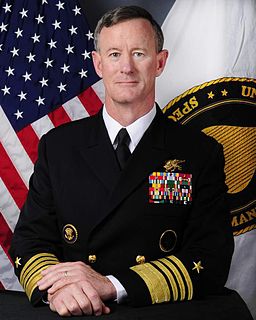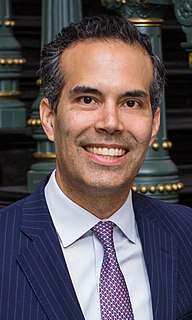A Quote by William H. McRaven
Following is one of the most underrated aspects of leadership.... I have seen many a good [military unit] underachieve, because someone...thought the commander was incompetent, and quietly worked to undermine his authority.
Related Quotes
Why do soldiers fight? They join because they believe in a higher cause -- protecting religion, their nation, defending against a foreign nation. But why do soldier stay and fight? Soldiers aren't individuals. They are part of a unit. And that unit is led by a commander. If they don't trust their commander ... if there is no leadership, there is nothing.
The reason everybody is so amazed and enamored with me right now is because I have worked every angle, I have worked every formula, I have worked every equation, I have seen every club, I have seen every performance, I have seen every joke, I have studied, I have done my job. That's why I'm good. It's not because I got up one night and decided I wanted to tell some f - -ing jokes.
Hopefully that will be seen as a response, a leadership responding to an issue and therefore one's authority, while it's not as high if you didn't have the problem, it does mean that people say 'well he used his authority to come up with a solution in double-quick time that met with broader public acceptance.'
I've been working in Hollywood for a long time now in many different aspects in front of the camera, behind the camera, and I've worked with top executives, presidents of networks. I've worked all around. I see energy and what's around these studios and a lot of these offices. You don't get the high positions in these companies if you don't take advantage of other people in some way. I've seen that around. I've seen that around the studios, whether it's producers or whoever. Egos are there. Greed.
Because President Obama had an overall strategy, military and civilian leaders under his command could make reactive decisions that advanced the president's goals. In the military, we call that commander's intent: When there's a decision to be made and you don't have exact guidance at that moment, you at least know overall what your boss wants.





































